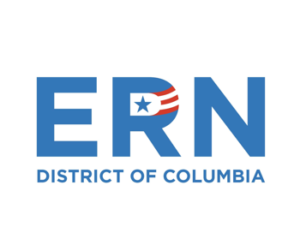
Committee on Health’s
Performance Oversight Hearing:
Department of Behavioral Health
Joshua Hodge
Policy and Communications Manager
Education Reform Now DC
January 24, 2022
Hello, and good morning Chairperson Gray and the Committee on Health, my name is Joshua Hodge. I am the Policy and Communications Manager at Education Reform Now DC (ERN DC) and I am a Ward 6 resident. I am pleased to provide testimony on the Department of Behavioral Health’s performance oversight hearing. I am testifying in support of behavioral health supports and resources for all students on behalf of ERN DC.
Behavioral health services have always been crucial for a student’s success in school, but these needs have been exacerbated by the pandemic. These needs will continue to persist as we are not headed towards a post-pandemic world, but instead, we are in a new covid era of life that directly affects schools and students well-being. Since the start of the pandemic, emergency department visits for children with mental health emergencies have risen sharply. Tens of thousands of children have experienced a pandemic-related death of a primary caregiver across the world, country, and right here in DC. In October of 2021, the American Academy of Pediatrics, the American Academy of Child and Adolescent Psychiatry, and the Children’s Hospital Association declared a national state of emergency in child and adolescent mental health.1
As we know, the pandemic has not impacted communities the same, with more Black, Brown, and low-income households being affected more severely by the effects of Covid-19, ways include: financial losses, housing instabilities, long-term health repercussions, physical sickness, loss of family members, and decreased overall mental health. Increased access to behavioral health services is proven to be transformative for students and their families and can boost the long-term overall health and productivity of communities as evidenced by school outcomes, overall health and well-being, and reduced crime rates. Behavioral health is foundational to the District’s long-term recovery from the impacts of the pandemic. Currently, only about 80% of public schools here in D.C. have a mental health services provider on-site and this needs to change too 100%, as all students have the right to, and need access to a mental health provider.
In closing, District leaders have an opportunity to deepen investments and focus on students to continue to address some of the most severe issues facing our youth. Presenting the chance to create a behavioral healthcare system that is more just and equitable for DC children, students, and families. Thank you for allowing me to testify today.
##